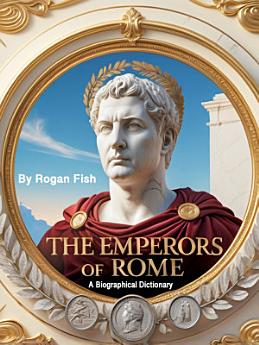The Emperors of Rome: A Biographical Dictionary
About this ebook
Augustus, born Gaius Octavius, was the first emperor and one of the most successful leaders in Roman history. His reign, from 27 BCE to 14 CE, ushered in the Pax Romana, a period of relative peace and prosperity. Augustus was not only a military genius but also a skilled politician who effectively consolidated power. By presenting himself as the restorer of the Roman Republic, he maintained a delicate balance between autocratic rule and the preservation of traditional republican institutions. Augustus implemented numerous reforms, including the establishment of a professional standing army and a system of taxation that stabilized the empire’s finances. His legacy is marked by the expansion of Roman territory and the establishment of Rome as the center of the ancient world.
Following Augustus, his stepson Tiberius became emperor in 14 CE. Tiberius' reign is often seen as a contrast to Augustus. While Augustus sought to maintain the image of republican values, Tiberius became increasingly reclusive and suspicious, particularly in the later years of his reign. His reign was marked by significant military achievements, including the consolidation of Rome’s frontiers in Germania and the Balkans, but his reign was also tainted by political purges and a growing atmosphere of distrust. Tiberius left the throne to his adopted son Caligula, but the political instability and paranoia of his reign would have lasting consequences on the empire.







